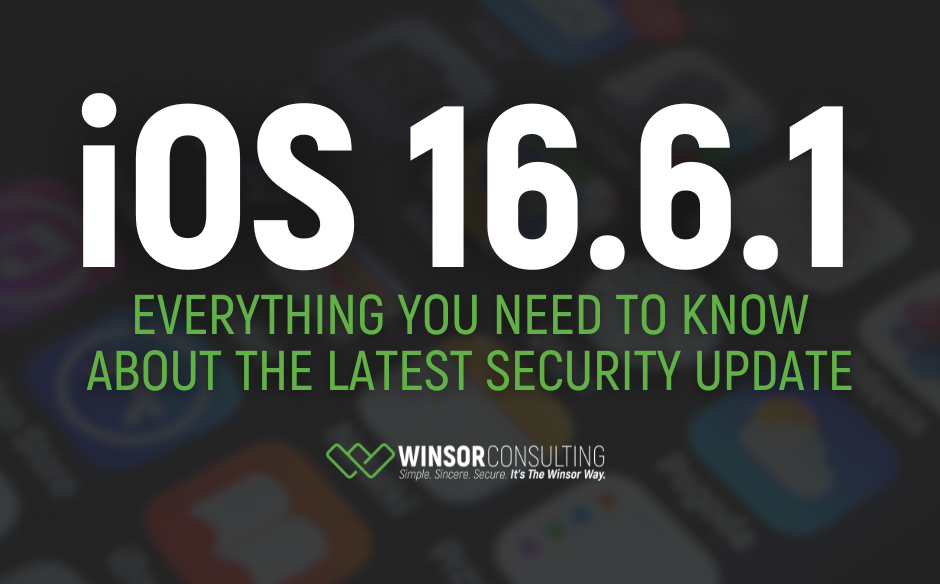From Solutions to Confidence: HIPAA Compliance Services
Be Compliant, Be Safe, Be Secure: At Winsor, we don’t just check boxes – we provide exhaustive solutions for your HIPAA compliance needs.
Don’t Let Your Guard Down: Trust Winsor for HIPAA Compliance
At Winsor, we know that achieving HIPAA compliance can be a daunting task, particularly for small and mid-sized businesses in the healthcare industry. That’s why we offer a range of services designed to help businesses of all sizes meet the requirements of the HIPAA Security and Privacy Rules. Our team of cybersecurity experts has extensive knowledge of the latest healthcare technologies, as well as a deep understanding of HIPAA regulations, allowing us to provide tailored solutions that meet the unique needs of each of our clients.
Our HIPAA compliance services are designed to take the burden of compliance off our clients’ shoulders, so they can focus on providing high-quality patient care. We provide comprehensive readiness assessments and gap analyses to help businesses identify any gaps in their compliance efforts, as well as expert guidance on the implementation and management of technical security controls required for HIPAA compliance. We also provide ongoing monitoring and reporting to ensure that our clients’ systems remain compliant with the latest HIPAA regulations and that any changes to the standards are addressed in a timely manner. At Winsor, we pride ourselves on delivering simple, sincere solutions that help our clients achieve their HIPAA compliance goals quickly, efficiently, and securely.
Your clients trust you with their data: we know the feeling.
Your clients trust you with their important data– we know the feeling.
Complementing our comprehensive readiness assessments and technical security controls implementation, Winsor offers a range of other HIPAA compliance services designed to help businesses meet the requirements of the HIPAA Security and Privacy Rules. We provide expert guidance on policies and procedures, as well as employee training programs, ensuring that all aspects of the HIPAA regulations are covered. We work closely with our clients to provide tailored solutions that are customized to their specific needs and budget, and that takes into account their unique business environment and security posture. With Winsor, businesses can rest assured that their patient data is protected and that they are fully compliant with the latest HIPAA regulations.
We are committed to providing the best possible HIPAA compliance solutions to our clients, and we continually invest in the latest healthcare technologies and best practices to stay ahead of the curve. We provide regular updates and recommendations to our clients, ensuring that they stay up-to-date with the latest requirements and that their compliance efforts are effective and sustainable. With our flexible, customized solutions, businesses can achieve HIPAA compliance quickly and efficiently, so they can focus on what really matters – providing high-quality patient care. Reach out to us today to learn how we can help your business meet its HIPAA compliance needs.
Don't be a HIPAA-Crite, keep your patients healthy online.

Compliance Assessments
We’ll conduct a comprehensive evaluation of your organization’s current security posture against CMMC standards to identify gaps and risks that need to be addressed.

Gap Analysis
We will perform an in-depth review of your organization’s current security controls and processes against the CMMC requirements to identify gaps and deficiencies that need to be remediated.

Technical Controls Implementation
The installation, configuration, and testing of technical security controls, such as firewalls, intrusion detection systems, and access controls, to ensure that an organization’s systems meet the requirements.
Business Associate Agreement (BAA) Review
A comprehensive review of all BAAs to ensure that all third-party vendors are in compliance with HIPAA regulations.
Risk Management
Our process will identify, evaluate, and prioritize potential risks to your organization’s assets and operations to inform the development of risk mitigation strategies.
Policy and Procedure Development
Winsor will create policies and procedures that align with the requirements of the HIPAA standards and provide clear guidance for employees on how to comply with these standards.
Security Awareness Training
Winsor has developed strategies to conduct employee training that ensures everyone in your organization understands their role in protecting sensitive information and complying with HIPAA regulations.
Ongoing Compliance Management
Our qualified specialists will work with your business to review all your processes against regulatory guidelines and applicable laws, providing guidance to bring your organization into full compliance. We’ll stay on top of regulations, even as the laws change. That means you can focus on running your business and we’ll make sure you’re compliant.
Vulnerability Assessments
Winsor identifies potential vulnerabilities in your organization’s systems and networks and then provides recommendations for remediation to help improve overall security posture.
Penetration Testing
This is an authorized attempt to exploit vulnerabilities in your organization’s systems to identify potential weaknesses that could be exploited by attackers and to help your organization better understand its overall security posture.
Don't let hackers HIPAA-notize you.
Secure your practiceLead the Change In Your Industry with CMMC Certification
HIPAA Compliance FAQ
What does HIPAA stand for?
HIPAA stands for the Health Insurance Portability and Accountability Act. It is a federal law in the United States that was enacted in 1996, and it is designed to protect the privacy and security of patient’s personal health information (PHI). The law sets national standards for the privacy, security, and confidentiality of PHI, and establishes requirements for the use, disclosure, and safeguarding of PHI by covered entities and their business associates. The law also includes provisions related to the electronic transmission of PHI, and it provides patients with certain rights related to their PHI, such as the right to access and amend their records, and the right to receive a notice of privacy practices from their healthcare providers.
How do I become HIPAA Compliant?
Hire Winsor ;)
Becoming HIPAA compliant involves several steps. Here are the basic steps you would need to take to achieve HIPAA compliance:
- Conduct a HIPAA Risk Assessment: The first step in becoming HIPAA compliant is to conduct a risk assessment of your organization to identify any areas where PHI could be at risk. This should include an evaluation of your physical, technical, and administrative security measures.
- Develop HIPAA Policies and Procedures: Once you have identified any areas where PHI could be at risk, you will need to develop and implement HIPAA policies and procedures to address those risks. This should include policies related to security and privacy, as well as procedures for managing and responding to security incidents.
- Train Your Workforce: All employees who have access to PHI must receive HIPAA training. This training should include an overview of the HIPAA regulations, your organization’s policies and procedures, and best practices for protecting PHI.
- Implement Technical Security Controls: You will need to implement technical security controls to protect the confidentiality, integrity, and availability of PHI. This may include firewalls, encryption, access controls, and other security measures.
- Enter into Business Associate Agreements: If your organization works with business associates who have access to PHI, you will need to enter into Business Associate Agreements (BAAs) with those partners to ensure that they are also compliant with HIPAA.
- Regularly Monitor and Update Your Compliance Efforts: Achieving HIPAA compliance is an ongoing process, and you will need to regularly monitor and update your compliance efforts to ensure that you are meeting the latest requirements and responding to any changes to the regulations.
While becoming HIPAA compliant can be a complex and time-consuming process, there are many resources available to help organizations achieve compliance, including third-party compliance services like Winsor. A qualified compliance service provider can help organizations navigate the complex requirements of the HIPAA regulations and provide expert guidance on the implementation of technical security controls and policies and procedures.
How long does HIPAA Compliance take?
The amount of time it takes to achieve HIPAA compliance can vary depending on a number of factors, such as the size of the organization, the complexity of the organization’s systems and processes, and the current state of the organization’s security measures. For smaller organizations with simpler security needs, achieving compliance may take several weeks to a few months. For larger organizations with more complex systems and processes, achieving compliance could take several months to a year or more.
In addition to the complexity of the organization’s systems and processes, the amount of time it takes to achieve compliance can also be affected by the organization’s level of preparedness and existing security measures. Organizations that have already implemented some security measures and have a good understanding of HIPAA regulations may be able to achieve compliance more quickly than those that are starting from scratch.
Overall, achieving HIPAA compliance is an ongoing process that requires regular monitoring and updating to ensure that security measures remain effective and up-to-date with the latest regulations. While the process of achieving compliance can take time and resources, the benefits of protecting patient privacy and avoiding costly fines and legal action make the investment worthwhile.
What is the HIPAA Privacy Rule?
The HIPAA Privacy Rule is a regulation under the Health Insurance Portability and Accountability Act (HIPAA) that sets national standards for the protection of individuals’ medical records and other personal health information (PHI). The Privacy Rule establishes the rights of patients to control the use and disclosure of their PHI, while also setting limits on how healthcare providers, health plans, and their business associates may use and disclose PHI.
The Privacy Rule applies to “covered entities” and their “business associates” who handle PHI, including healthcare providers, health plans, and clearinghouses. Under the Privacy Rule, covered entities must obtain patients’ written consent before using or disclosing their PHI for purposes other than treatment, payment, or healthcare operations. The Rule also gives patients the right to access and amend their PHI, as well as the right to receive a notice of privacy practices from their healthcare providers.
In addition to these basic rights, the Privacy Rule also sets standards for the security of PHI, including the use of administrative, physical, and technical safeguards to protect the confidentiality, integrity, and availability of electronic PHI. The Rule requires covered entities to appoint a privacy officer, implement policies and procedures to ensure compliance with the Privacy Rule, and train their workforce on privacy and security measures.
Overall, the HIPAA Privacy Rule is an important component of the HIPAA regulations, as it helps to protect patient’s privacy and ensure the security of their personal health information.
How much does HIPAA Compliance cost?
The cost of achieving HIPAA compliance can vary depending on several factors, such as the size of the organization, the complexity of the organization’s systems and processes, and the level of support and guidance needed to achieve compliance. However, it is important to note that the cost of non-compliance with HIPAA can be substantial and far outweigh the costs of achieving compliance.
There are several cost components to achieving HIPAA compliance, including:
- Conducting a HIPAA risk assessment: This can range in cost depending on the size and complexity of the organization, but can typically range from a few thousand to tens of thousands of dollars.
- Developing and implementing HIPAA policies and procedures: The cost of this can vary depending on the level of customization and complexity required, but can range from a few thousand to tens of thousands of dollars.
- Technical security controls: The cost of implementing technical security controls can also vary depending on the size and complexity of the organization’s systems and processes, but can typically range from a few thousand to tens of thousands of dollars.
- Employee training: The cost of providing employee training on HIPAA compliance can vary depending on the size of the workforce and the complexity of the training, but can range from a few hundred to a few thousand dollars.
- Compliance monitoring and reporting: Ongoing monitoring and reporting to ensure that your systems remain compliant with the latest HIPAA regulations can also incur additional costs.
Overall, the cost of achieving HIPAA compliance can range from a few thousand to tens of thousands of dollars, depending on the size and complexity of the organization. However, the cost of non-compliance, which can include substantial fines and legal action, make the investment in compliance worthwhile. Additionally, working with a qualified HIPAA compliance service provider like Winsor can help organizations achieve compliance more efficiently and cost-effectively.



